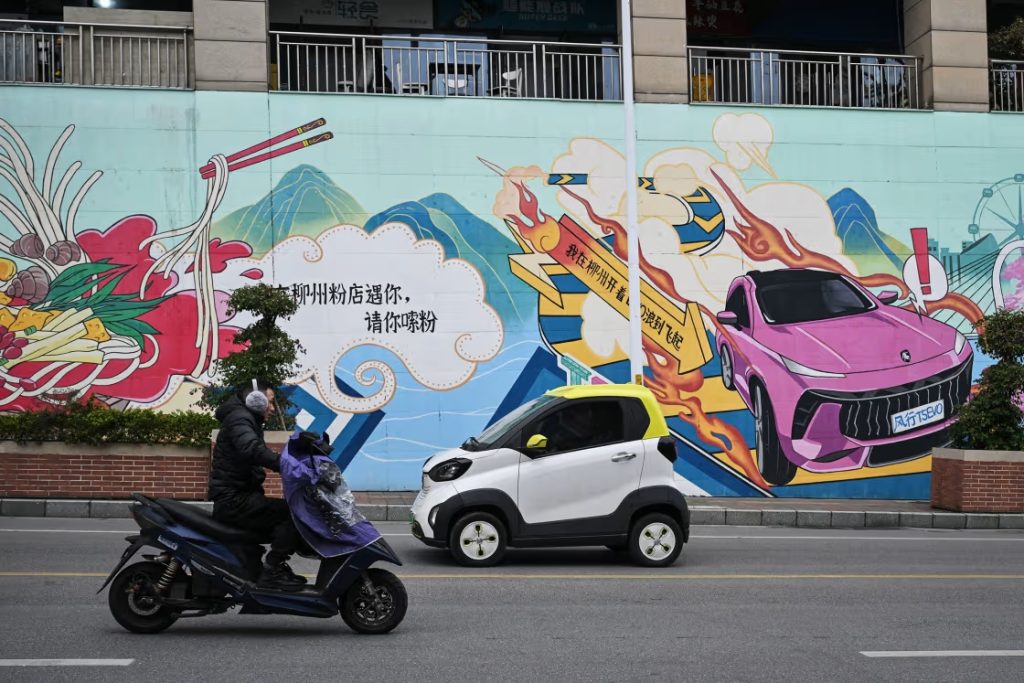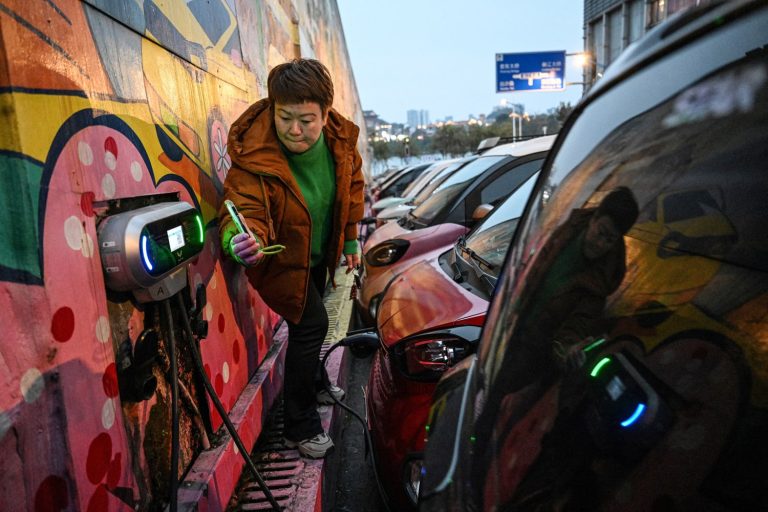U.S. officials allege China has ‘overcapacity’ in EVs and other clean energy products, while Chinese EV manufacturers argue they are leveraging their strengths.
Liuzhou, situated in the southwestern Guangxi region of China, may not boast the scale of megacities like Beijing or Shanghai, yet it looms large in the nation’s burgeoning electric vehicle (EV) industry. With a population of four million, this city has entrenched itself as an EV capital, driven by robust industrial growth supported by government initiatives. Despite its success, Liuzhou’s prominence has raised concerns abroad, particularly among U.S. and Western officials who perceive Chinese overcapacity in EVs and clean energy technologies as a threat to global trade dynamics.
In the previous year alone, Liuzhou churned out an impressive half a million EVs of various types, with a production capacity poised to triple this figure. This exponential growth has been bolstered by a favorable confluence of factors: abundant local talent, a solid industrial foundation, and significantly lower operational costs compared to more urbanized regions. Yu Hongqiao, overseeing operations at Wuling New Energy’s Liuzhou facility, attributes the city’s competitive edge to these factors, highlighting the affordability of labor, logistics, and a rich reservoir of industry expertise.
Liuzhou’s automotive landscape is dominated by five major state-backed manufacturers, including Guangxi Auto, the parent company of Wuling. These entities are integral to China’s broader strategy of automotive dominance, ranging from high-end luxury vehicles like the Hongqi by FAW Group, favored by government officials, to budget-friendly EVs co-produced by SAIC in collaboration with General Motors and Guangxi Auto. Moreover, the city hosts approximately 300 ancillary companies specializing in the EV supply chain, which further accelerates production efficiency and cost-effectiveness.
The competitive pricing of Chinese EVs has significantly bolstered their popularity within China, where they enjoy far greater market penetration than in the United States. Unlike their American counterparts, such as Tesla, which focus on premium segments, Chinese manufacturers have leveraged extensive government subsidies and support spanning buyer incentives, tax exemptions, and infrastructure investments. According to Scott Kennedy of the Center for Strategic and International Studies, these subsidies totaled nearly $231 billion from 2009 to 2023, underscoring the magnitude of state backing that has propelled China’s EV industry forward.
However, China’s success has not been without controversy. Concerns over potential market flooding and unfair competition prompted the Biden administration to announce plans for escalating tariffs on Chinese EVs and related clean energy products. These measures include proposed tariffs of up to 100% on EVs and 25% on EV batteries, paralleled by similar actions from the European Commission. In response, Beijing has criticized these moves as protectionist and detrimental to global climate efforts, hinting at retaliatory actions targeting sectors like European pork imports and advocating for higher tariffs on gasoline-powered cars imported from Europe.
Despite the current focus on domestic markets, Liuzhou’s manufacturers are increasingly looking outward, eyeing opportunities in international markets such as the United States. Yu, reflecting on recent developments, asserts that the imposed tariffs are incongruent with free-market principles and argues that such measures primarily burden American consumers rather than Chinese producers. He vehemently dismisses claims of Chinese overcapacity in EV production as unfounded, contending that competitiveness driven by scale and efficiency is a legitimate market advantage.

As Liuzhou charts its course amid global scrutiny and trade tensions, its trajectory underscores the complexities of China’s industrial policy and its implications for international trade dynamics. With ambitions to expand its EV footprint beyond domestic borders, the city remains a pivotal player in the global race towards sustainable mobility, navigating regulatory challenges while capitalizing on its strengths in manufacturing and cost competitiveness.
In conclusion, Liuzhou’s ascent as an EV powerhouse epitomizes China’s strategic ambitions and underscores the evolving dynamics of global economic competition in the clean energy sector. The city’s resilience and innovation in the face of international scrutiny underscore its pivotal role in shaping the future of automotive technology and sustainability worldwide.

